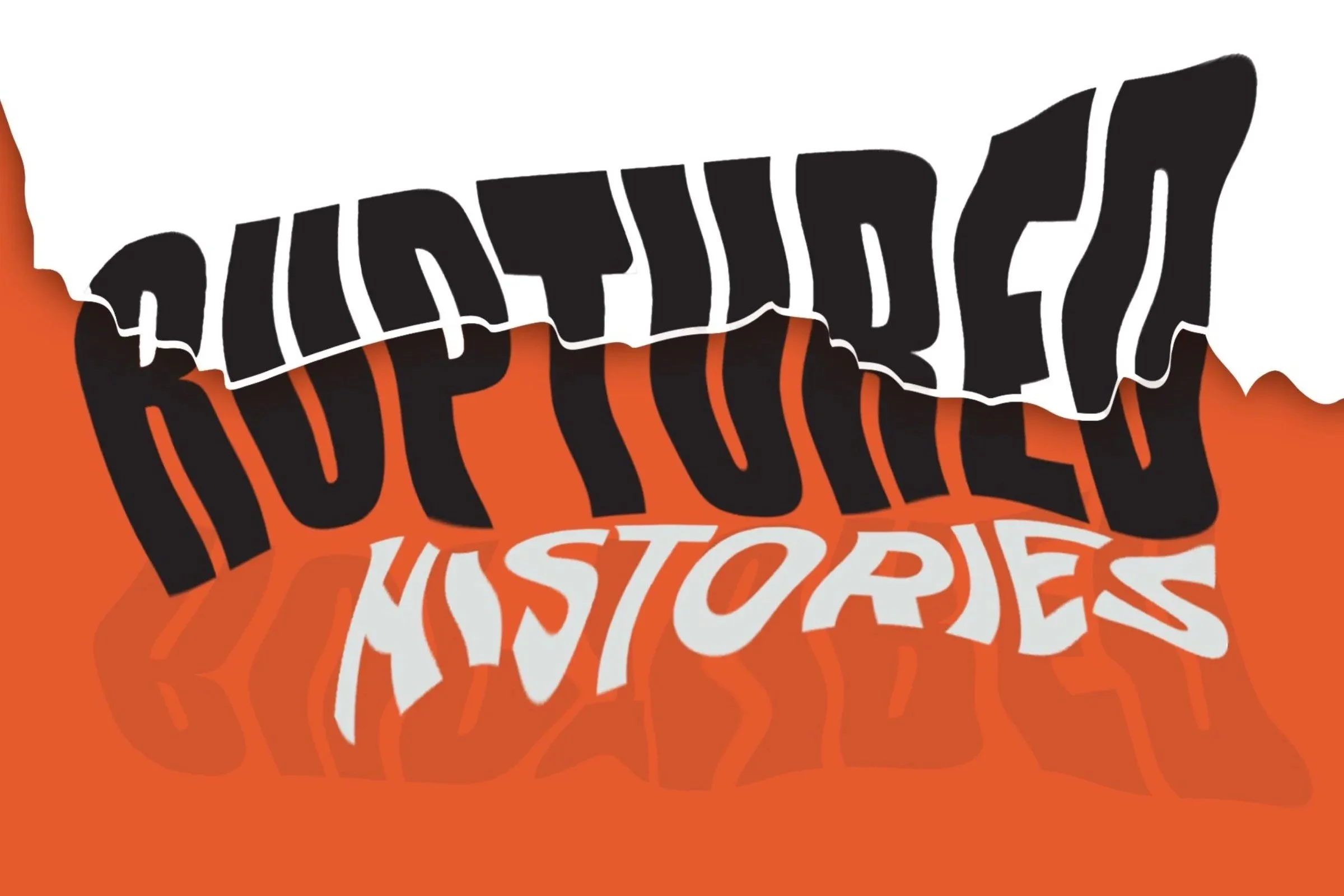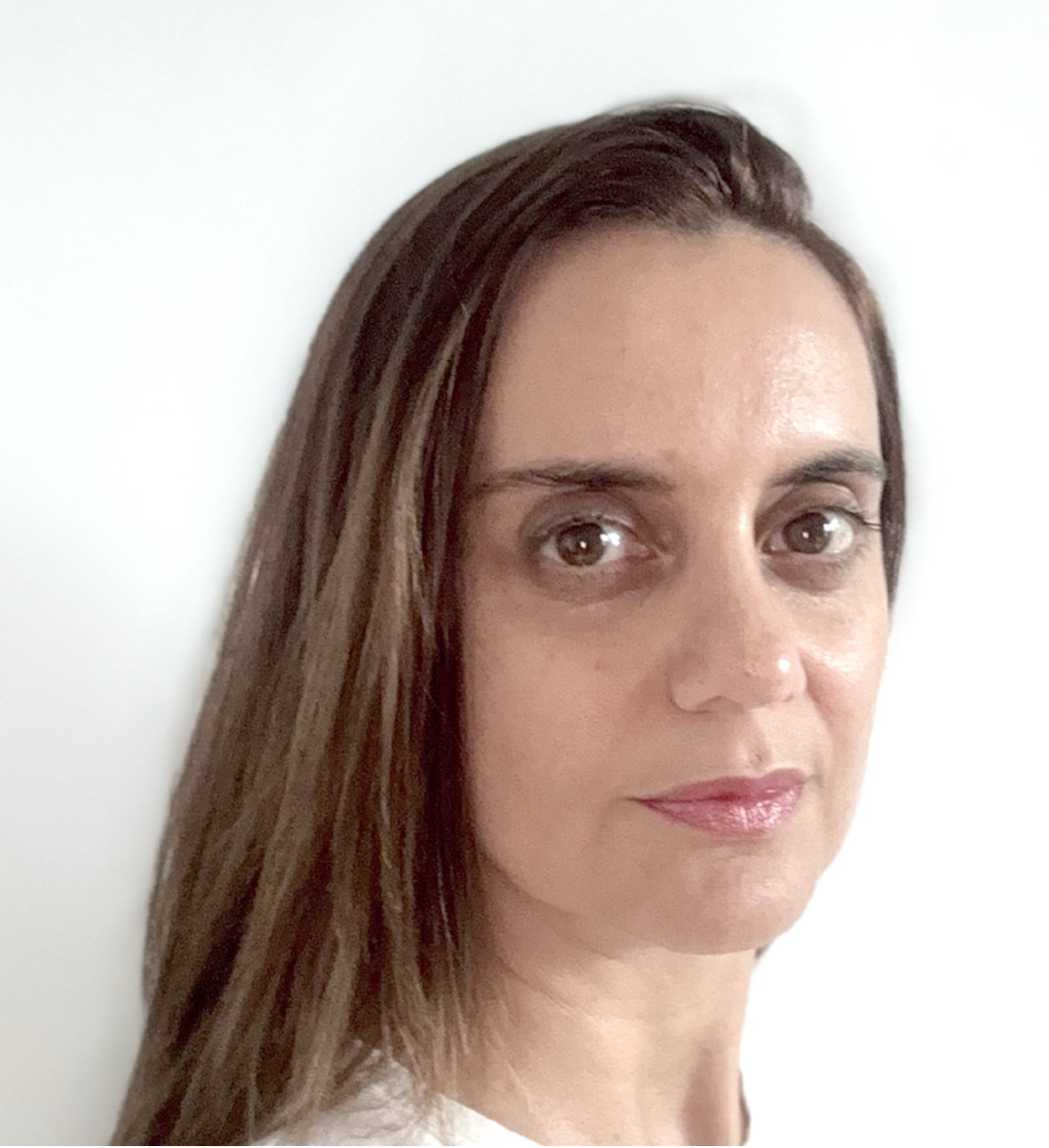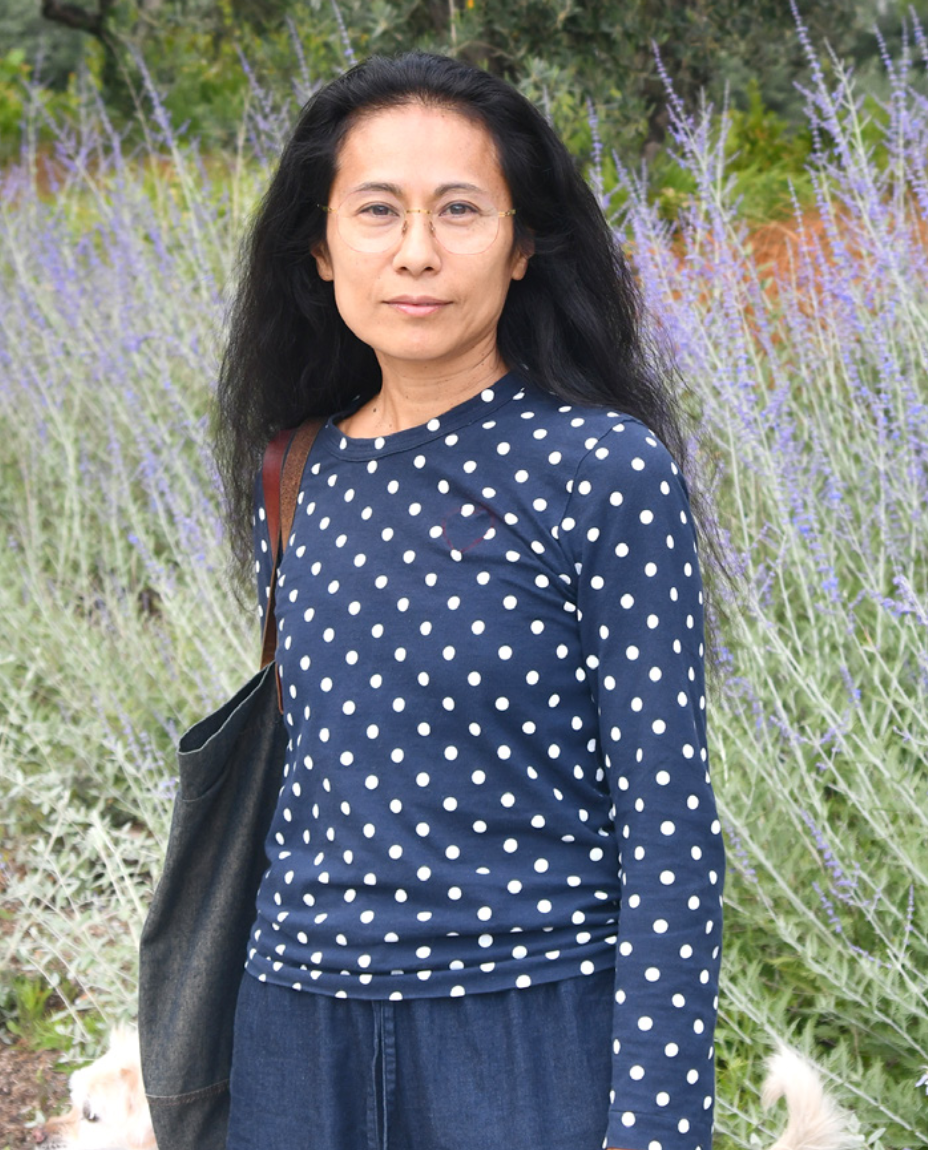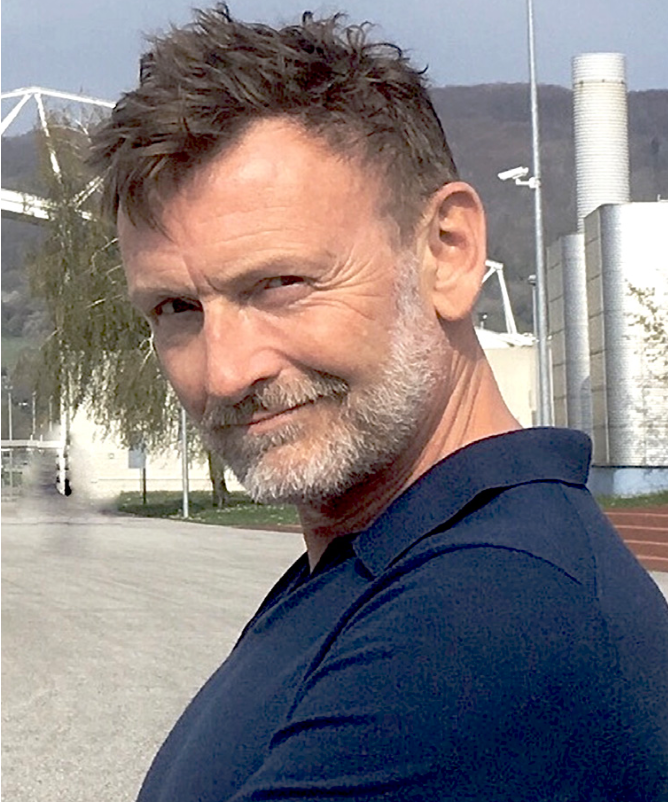Extraction - Coloniality and the Decolonisation of Identities
The Ruptured Histories Project brings together a multiplicity of strands of the global debate on Decolonisation to enable us to investigate it from different geographical and cultural vantage points. This presentation takes the form of a moderated discussion with artists and theorists who reflect on the legacy of colonialism in the Global South, demonstrated in the extraction of identities, cultural frameworks and local resources.
DATE: Thursday, 2nd October 2025
TIME: 17.00 CET (Paris); 12.00 GMT-3 (Sao Paulo)
DURATION: 2 hours
The Ruptured Histories webinar is open to AICA members and non-members, students and academics, worldwide. There is no charge for attending.
After the moderated discussion there will be time for the audience to raise issues, present questions and discuss points with any of the speakers.
To subscribe to the Web Symposium please send an e-mail to: aicainternational.webinar@gmail.com
Zoom link of the event: https://us02web.zoom.us/j/8188594312?omn=87463306172
RUPTURED HISTORIES
Ruptured Histories is a series of web symposiums presented by AICA (the International Association of Art Critics) on the initiative of the AICA Forum Committee (formerly the Fellowship Fund Committee).
This is the fifth and last iteration of the Ruptured Histories theme:
RUPTURED HISTORIES: Extraction – Coloniality and the Decolonisation of Identities
According to theorists like Edward Said, Walter Mignolo and Aníbal Quijano, while colonialism as a political organization has ended, its more vicious structure – coloniality – endures in many former European colonies, especially those situated in the Global South. Whereas the political structure controlled by the European metropoles gave way to national governments across the globe, the control of subjectivities remains ever present in the contemporary world through the suppression of cultural specificity and identities.
As Mignolo elaborated, coloniality is the downside of modernity, which means that practices of colonialism and those of coloniality have historically been the base for the development of capitalism as modernity’s major project. Among those practices, extraction can be widely understood as regarding the spoils of the land and its wealth, but also the spoiling of identities, social practices like knowledge, art and religion, as well as many other cultural traits not conformed to the European status quo.
Hence, artists and theorists from the Global South – or working on its history, art and culture – have been dedicated to identifying and reflecting on the legacy of colonialism and coloniality, a legacy that is fundamentally extractivist in nature. Our webinar thus focuses on the extraction of identities, their frameworks and their resources. By framing identity as part of a reciprocal ecological system, we are able to consider a wide range of associated topics that include individuality, communities, beliefs, gender, nature, ecology and society – as entrenched hierarchical constructs that can be unravelled and complicated through a process of decolonial enquiry.
PROGRAMME
INTRODUCING SPEAKERS:
Christian Kravagna
Photo by Niko Havranek
Christian Kravagna is an art historian and curator. He is professor of Postcolonial Studies at the Academy of Fine Arts Vienna. His research focus is on decolonial politics of liberation in art, culture and theoretical thinking.
Among his recent books are Transmodern: An art history of contact: 1920–60, Manchester 2022, and Das amerikanische Museum: Sklaverei, Schwarze Geschichte und der Kampf um Gerechtigkeit in Museen der Südstaaten (The American Museum: Slavery, Black history and the Struggle for Justice in Museums of the South), Vienna / Berlin 2019.
In 2024 he curated the exhibition Avant-garde and Liberation: Contemporary Art and Decolonial Modernism at Museum of Modern Art Stiftung Ludwig in Vienna.
Abstract
When Kenyan writer Ngũgĩ wa Thiong’o proclaimed the project of “decolonizing the mind” in the 1980s, it seemed essential to him to build on a “tradition of resistance.” The work of decolonizing consciousness, subjectivity, or identity is directed toward the future, but it cannot do without a historical perspective. This also applies to contemporary art.
In the exhibition Avant-garde and Liberation, which I curated at MUMOK in Vienna last year, I discussed the significance of early- and mid-20th-century decolonial modernism for the politics of liberation today with 24 artists from different parts of the world. I will pick out two or three examples and use these works to discuss artistic methods that invoke the ancestors in decolonial struggles.
Questions of temporality play an important role today when it comes to the artistic reconnection with traditions of resistance against colonial exploitation, or when historically unfinished projects of liberation are taken up again by other means to counter contemporary threats of racism, nationalism, and neocolonialism.
Christian Kravagna will also be responding to the other speakers.
Paula Albuquerque
Paula Albuquerque is an Amsterdam-based Portuguese artist and scholar, showing work in solo exhibitions at galleries Zone2Source (2024); Bradwolff Projects (2023, 2018, 2015); Looiersgracht 60 (2023); and Nieuw Dakota (2020).
Her films have been presented at international film festivals including Unarchive (2025), Muta (2025), IDFA (2024), Ji’hlava IDFF (2024), DocAlliance (2024), DocLisboa (2023), Sheffield DOC|Fest (2020), and Rotterdam IFFR (2016). She has also participated in conferences such as EYE International, Media in Transition at MIT, NECS, and Visible Evidence.
She published the books Enter the Ghost—Haunted Media Ecologies (2020) and The Webcam as an Emerging Cinematic Medium (2018). She is currently a Senior Researcher at Gerrit Rietveld Academie, an Assistant Researcher at the Universidade Nova de Lisboa, and a Supervisory Board member of the Framer Framed Contemporary Art Platform.
She has been commissioned by EYE Filmmuseum to make work with materials from the colonial collection for a group exhibition opening in February 2026.
Abstract
Colonial Film Archives and the Specter of Surveillance
This presentation provides a panoramic view of my current research into colonial non-fiction films through a historical, decolonial, and anarchival lens, which analyzes structures of representation and their long-term impact on subjectification. Building on my ongoing work with Dutch colonial films archived at the EYE Film Museum in Amsterdam, the project expands to include Portuguese colonial films archived at the Portuguese Cinematheque in Lisbon. The study applies transdisciplinary methods, blending historical, film/media studies, and artistic research, to critically examine colonial documentaries, travelogues, and home movies produced by settlers.
These films are analyzed as proto-surveillance devices that not only acted as visual evidence for colonial governance, but also participated in the creation of indigenous subjects by representing them as in need of European “civilizing” intervention. The project further explores how these films documented racialized bodies as passive objects in the colonial narrative and obscured signs of indigenous resistance and complicity.
The project maps the production and distribution of colonial film production to critically analyze their politics of representation, comparing strategies used by Dutch and Portuguese filmmakers against the backdrop of European colonial propaganda. It also explores the connections between colonial film stereotypes and contemporary surveillance practices, particularly in how visual data is used to perpetuate racialized subjectification. Methodologically, the research takes a dual trajectory: theoretical and artistic. The theoretical component is divided into three key strands. The first identifies continuities between Dutch and Portuguese colonial filmmaking practices, focusing on films portraying indigenous people as underdeveloped and in need of European aid. The second focuses on the analysis of the control systems embedded within colonial non-fiction films, interpreting them as proto-surveillance tools that reinforced necropolitics and biopower, such as medical and religious films. The third draws on hauntology and spectral theory to explore how colonial-era films continue to shape contemporary racialized stereotypes, particularly in surveillance algorithms.
In addition to theoretical analysis, the project engages in artistic research, using archival materials to create experimental films and installations. These artistic interventions allow for the extraction of non-discursive knowledge from the films, expanding the understanding of their embedded political and material processes. The artistic component also functions as a form of historical theorizing, offering an anarchival ecology of practices that reworks mainstream archives and challenges their discourse.
Sandra Gamarra Heshiki
Photo by Carmela Garcia
Sandra Gamarra Heshiki (1972) was born and raised in Lima. Gamarra studied fine arts at the Pontifical Catholic University of Peru. In 2003 she moved to Madrid to complete her art studies where she has development her work until 2019.
Utilizes painting in a figurative way to conceptually cross-examine art and its mechanisms. Based on appropriations, her work acts as a mirror that displaces exhibition formats, alters the circulation of images, subverts the ownership of culture as well as the narrative between art and its viewer. Within this field of investigation, her Peruvian background adds a sincretic gaze where pre-Columbian, colonial and western cultures collide. Some of her recent exhibitions recontextualize art genres such as landscape, self-portrait or still life.
In 2002, due to the lack of a contemporary art institution in Lima, she created LiMac. This fictitious museum first established itself with its logo on merchandise (pencils, erasers, mugs or bags). Since then, LiMac produced collections, exhibitions, publications, an architectural project and its website (www.li-mac.org). Lives and work in Madrid.
She participated in collective exhibitions of the XXIX Sao Paulo Biennial, the Italo-Latin American Pavillon (IILA) of the 53rd Venice Biennial, the XI and XVI Cuenca Biennial, the MoMA in New York, the Martin Gropius Bau in Berlin, or the Künstlerhaus in Vienna. Currently presenting Pinacoteca Migrante in the Spanish Pavilion at the 60th Venice Biennial.
Abstract
I was born and raised in Lima, where I was educated in Western culture. A culture that promised progress, unlike Andean culture, which, despite being a significant part of Peruvian identity, was supposed to be understood as part of the past, or something that kept us anchored to it. The tensions between these two realities gave way to a terrible internal war that was understood as a clash between opposites: the savage against the civilized, the past against the future, good against evil.
My arrival in Madrid led to a re-evaluation of that legacy and of my belonging to a culture I thought was common. In this new scenario, the underdevelopment of Latin American countries is not just due to governmental incompetence, but to the very need of the capitalist system to maintain unstable countries that can provide raw materials and cheap labor, as well as “virgin” territories to trade their production surplus.
In this post-colonial regime, extractivism has other names: free trade agreements, development aid, or international cooperation. It creates dependencies and flows of material and cultural capital. Thus, extractivism is not just an activity that gathers capital and leaves social and environmental degradation in its wake; it must also be understood as an activity that extracts original forms of social organization to implant its own model, turning them into a kind of reservoir for Western culture. My education, therefore, must be understood in this way—not as a privilege but as an obligation.
My work revolves around using those historical, scientific, and artistic legacies, employing the museum as a stage for indoctrination. By replicating the mechanisms with which Western truths are constructed and preserved, I try to unveil the cracks, the voids, and our own participation in maintaining a structure that, through exhibition, naturalizes plunder.
INTRODUCING Moderator:
Robert-Jan Muller
Robert-Jan Muller (NL–Amsterdam) is an art historian and art critic. He writes on modern and contemporary art and has published for Dutch as well as for non-Dutch publications such as Artforum.
He published the book The Words and the Images: Text and Image in the Art of the Twentieth Century, and the monograph on Dutch painter Erik Andriesse. At the Utrecht University of the Arts (HKU) he was associate lector on Art and Economy. From 2010, he was chairman of AICA Netherlands for nine years and is currently an international board member. Muller was a member of the AICA Committee on Censorship and Freedom of Expression.
In 2014 he organized the AICA symposium Manifesta in St. Petersburg? in response to the criminalization of homosexuality in Russia. In 2021 he co-initiated and organized, as a member of the AICA Fellowship Fund Committee, the webinar Decolonization in the Museum: Interrogating the History of Slavery.
In 2016, after a visit to Havana, Muller published an article about the suppression of artistic freedom and expression in Cuba. He has also produced video productions on various national and international visual artists (e.g., Alan Charlton, Günther Tuzina, Jerry Zeniuk, Irma Boom).
Members of the AICA Forum Committee
Prof. Karen von Veh, Vice President of AICA International and AFC Chairperson, is Professor Emerita in art history at the University of Johannesburg, South Africa.
Dr. Danièle Perrier, Past President of AICA Germany and past chair of the Fellowship Fund Committee (now the AFC), is an art historian, founding director of the Ludwig Museum Koblenz and writer on modern and contemporary art.
Niilofur Farrukh, AICA Pakistan, and Chairperson of the AICA Censorship Committee, is an art interventionist whose seminal initiatives have expanded the space for art publication, curation and public art in Pakistan.
Robert-Jan Muller MA, is an AICA International board member and an art historian. He publishes articles on modern and contemporary art in various publications, including Museumtijdschrift. He is an honorary member of AICA Netherlands and is internationally active in the AICA Forum Committee.
Dr. Joke de Wolf, President of AICA Netherlands, is a full-time freelance art critic, publishing regularly for the national newspaper Trouw and weekly news magazine De Groene Amsterdammer.
Dr. Małgorzata Kaźmierczak, is President of AICA International and a member of AICA Poland.
Dr. Marta-Anna Raczek-Karcz, AICA Poland, is a curator and art critic dealing with contemporary printmaking and graphic art, with special focus on social agency and critical potential of this medium of art.
Dr. Arkadiusz Poltorak, President of AICA Poland, is a cultural studies scholar, art critic and curator based in Kraków and assistant professor in the Department of Performance Studies at the Jagiellonian University in Kraków.
Dr. Ana Lucia Beck, Vice-president for Midwest Brazil AICA, is an Art History Professor at the Universidade Federal de Goiás in Brazil, and a member at the European Society of Comparative Literature (ESCL/SELC).
Dr. Jurij Dobriakov, President of AICA Lithuania, is a writer, curator and Associate Professor at the Vilnius Academy of Arts.
RUPTURED HISTORIES: CRITICAL EXCHANGES ON ISSUES OF DECOLONISATION
A short background to this project
Decolonising has been defined as the process of deconstructing colonial ideologies, attitudes, mechanisms of power, of superiority, and privilege of Western thought and approach. The awareness created by activist critiques in postcolonial debates and Subaltern studies has today evolved into proactive Decolonisation to address a range of issues.
In this context, it’s important to understand that Decolonisation has a history beyond the 21st-century academic discourse and critical practice, as it has long been an integral part of the anti-colonial resistance and a vital part of the national consciousness of postcolonial nations. This webinar is the 5th and last in this series.
Concept: Niilofur Farrukh and Anselmo Villata
This announcement is also available as a PDF file in English and Spanish.





